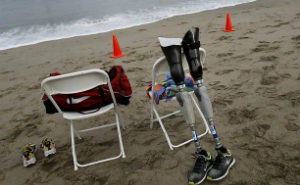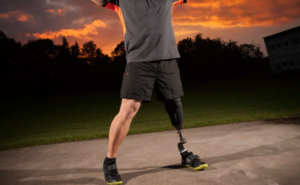Receiving a new prosthesis is an enormous event in a child’s life, from learning how to care for it, to the complex emotional response it evokes in themselves and in others.
It is important to know that you are not alone when it comes to understanding how pediatric orthotics Arkansas will fit into your child’s world. By undertaking basic research, talking to your child’s prosthetic provider, and breaking down this information into simple pieces for your child, she will soon feel comfortable adapting to her new prosthesis.
Basic Care
The first steps when discussing a prosthesis with your child is learning about basic care. Hygiene is crucial for both the residual limb, and the new prosthetic device. Socks and silicone or gel liners need to be cleaned in specific ways, which you will learn about together. In addition, your child will have to learn the importance of avoiding water or chemicals like sunscreen, art supplies or bug spray, on the prosthesis itself.
You will also have to make sure your child understands under what circumstances the prosthetic limb should be removed. While these and other care items will be explained to you and your child during measuring and fitting sessions, in the beginning it helps to frequently remind your child about the basics.
When Limb Loss is New
While a child who receives a prosthesis early in life might never have to make any emotional adjustments, a newly lost limb and its replacement will be a big transformation in an older child’s life. How old your child is when they lose a limb may determine many of the concerns and questions she has about a new prosthetic device.
- A toddler, for example, might only be curious about how the components of the new arm or leg work, while a school-aged child will be nervous about being teased at school.
- Preteens and teens, on the other hand, will likely be focused on body image, with the prosthesis potentially representing a huge source of insecurity.
In each case, talking to your child, and making sure they have access to professional support, will make a big difference in helping them understand their new prosthetic device.
Encourage Discussion with Your Prosthetist
As much time as you have devoted to learning about your child’s prosthesis, do not forget to take advantage of the professional help your prosthetist provides. After all, your child will naturally look up to these professionals, and respect the information and advice that they share.
Your prosthetist is not just the person who measures your child for their device, but also someone who additionally understands the challenges children with limb loss face. Encourage your child to ask questions, whether they are specific to the prosthetic, or more emotional in nature.
We are here to provide support for you and your child through fabricating custom pediatric orthotics and prosthetic limbs in Arkansas. Contact us today at (501) 683-8889 if you have any questions that will better help your child adjust to the new prosthesis in his or her life.




Leave a Reply